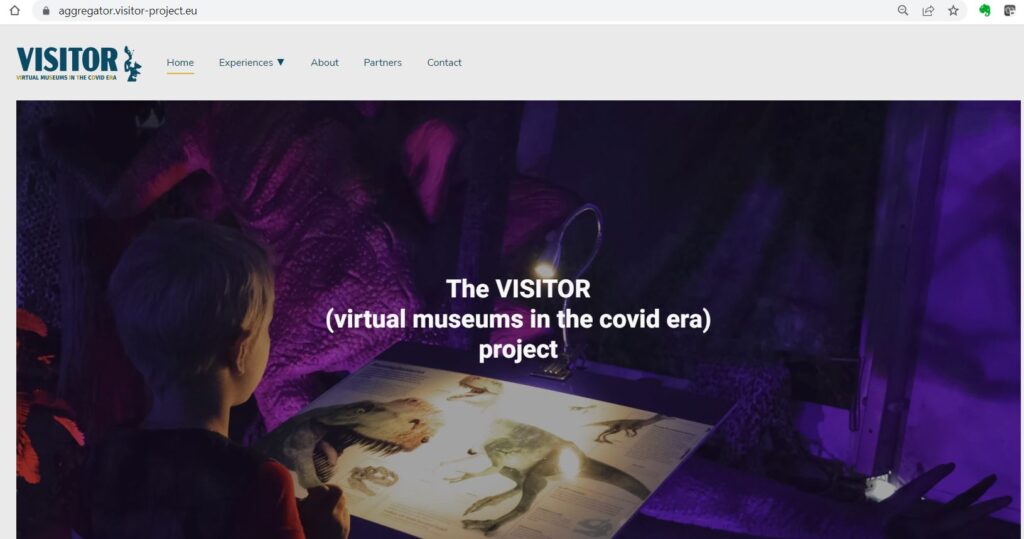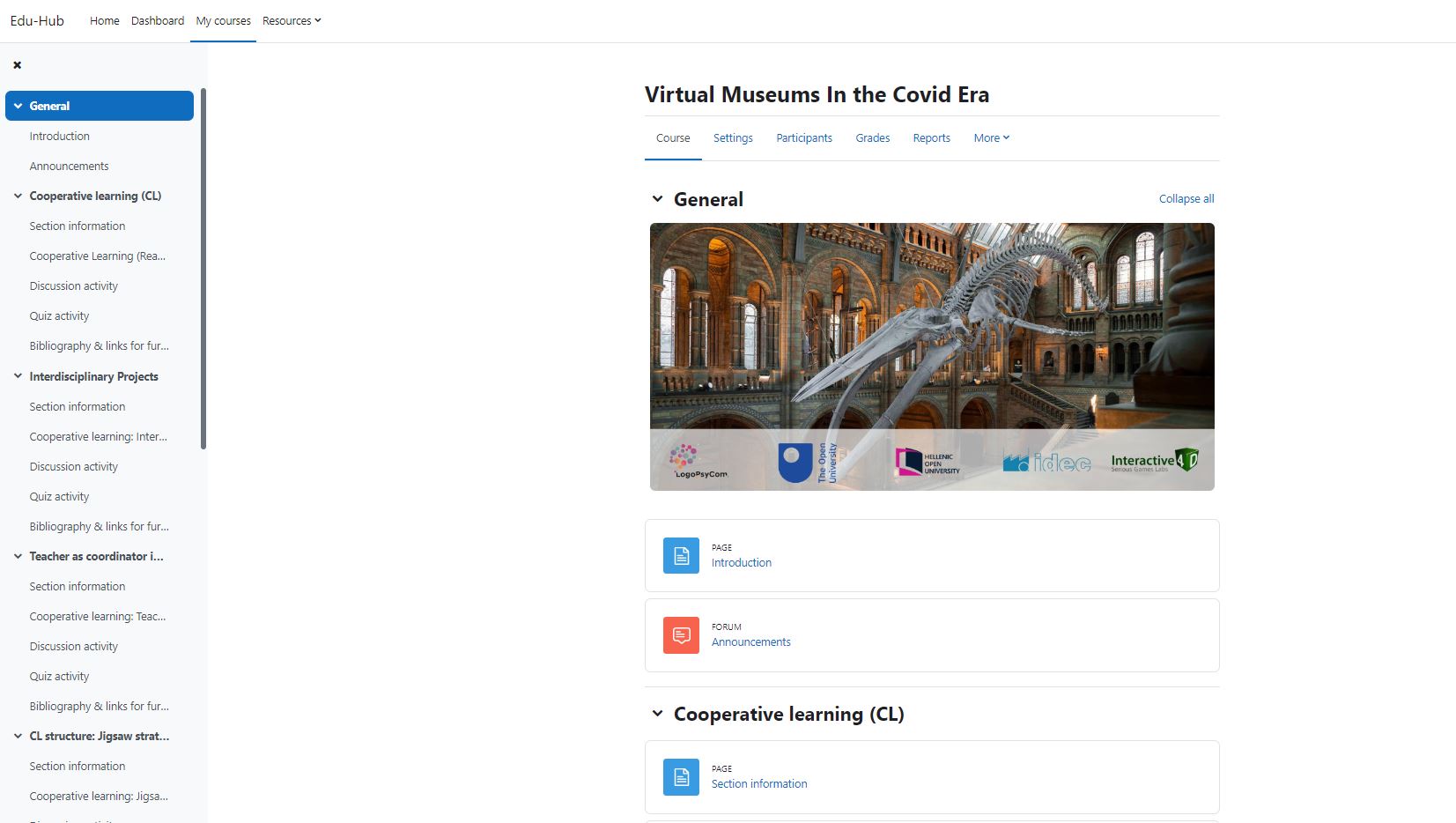VISITOR
The project VISITOR aims to deal with the prohibition of cultural visits to museums and other culture and science exhibition areas in the Covid- 19 era, even now that the schools are open and proposes its digital integration in the school curricula..
RESULTS
The VISITOR project is divided into 3 main results called Intellectual Outputs (IO), with specific activities and tasks:
IO1 – Digital museum content aggregator and toolkit
The first output of VISITOR project is a digital museum exhibits content aggregator and toolkit which will be available for all partner countries. The output aims to provide teachers with an innovative tool that gathers digital materials developed from the museums. The use of the aggregator targets to create new paths for multi-thematic teaching and learning.
The aggregator goes beyond the state of the art, as it will not just collect digital exhibitions and applications developed by the museums in one space, but will also process the digital resources under categories and tools tailored to the educational needs of school education. The partnership aims to gather material from many kinds of museums, in order to enable their integration into the teaching of many subjects (science, history, technology, environment, art, European culture etc.). The materials can be also accessed through a search engine tool that will further facilitate teachers to identify the resources available for use.
The inclusive character of the platform is also an innovative element, as due to the expertise of Logopsycom, the platform will be also accessible by end-users with learning difficulties.
Another innovative element of the aggregator website is that (collectively with the other outputs) it will promote and include citizen science activities that will further engage teachers and students in research activities in a creative way and in an intercultural environment.
IO2 – Digital applications and tools for virtual tours, and use cases for digital exhibits and resources
The tools will be developed based on the results of teachers’ training needs analysis.
The Text-based game developed by I4D will lead the trainer in a virtual 3D futuristic exhibition. This exhibition will allow them to earn knowledge in the field of culture, history, arts and science based on the selected use case and “digital story” to be developed. Specifically, the specific tool gives the opportunity to teachers to design their interactive quizzes divided into different modules, each of them corresponding to different thematic aspects.
A teacher gains the opportunity to design a content based on a structured pedagogical approach, such as Bloom taxonomy. Beginning with questions that require simplistic mental processes, the learners will gain the opportunity to learn deeper mentally. Τhe app gives the opportunity to construct a virtual and interdisciplinary exhibition in which a teacher should combine exhibits from different historical ages and cultures imported into the configured virtual space in the form of 2D and 3D models of existing artefacts.
To support teachers in constructing their virtual exhibition, the partners will develop exemplar use cases (strict lesson plans and flexible recommendations) for the museum digital exhibits and citizen science resources. The exemplar use cases, will not only facilitate the training of teachers during this project, but also will guide the use of the exhibits in their classrooms afterwards. The use cases will allow the use of the exhibits and resources by visitors of the digital museum toolkit in the future.
Link to the game (on computer only): https://visitor-project.eu/game
Click here to read the guide for teachers.
IO3 – Elearning course for training teachers in developing and delivering Intercultural and Interactive Virtual Tours
An online training programme for teachers will be developed. The specific course aims to grow digital and pedagogical skills to trainees.
In order to achieve this, the course will train teachers in digital storytelling projects based on an experiential approach, as teachers should construct their digital stories gathering educational materials through the content of digital museums.
Additionally, the course will provide a detailed guide to train teachers to leverage the VISITOR applications and digital content aggregator as main facilitators for developing their Problem Based Learning and digital storytelling activities as well as collaborating in the context of an educational ecosystem that can facilitate networking, flipped learning and crowdsourcing of both content and good practices on this educational topic.
The main target group will be teachers of different specialties in primary and secondary education. The course will be developed based on a training needs analysis of teachers. The needs analysis will build on existing research and resources related to the experience of teachers who have already engaged in using digital museum exhibits and other digital resources with their students. This analysis will provide us with insights into the resources, motivations, challenges, and recommendations of teachers, and will support us in recruitment, training and scaffolding decisions.



